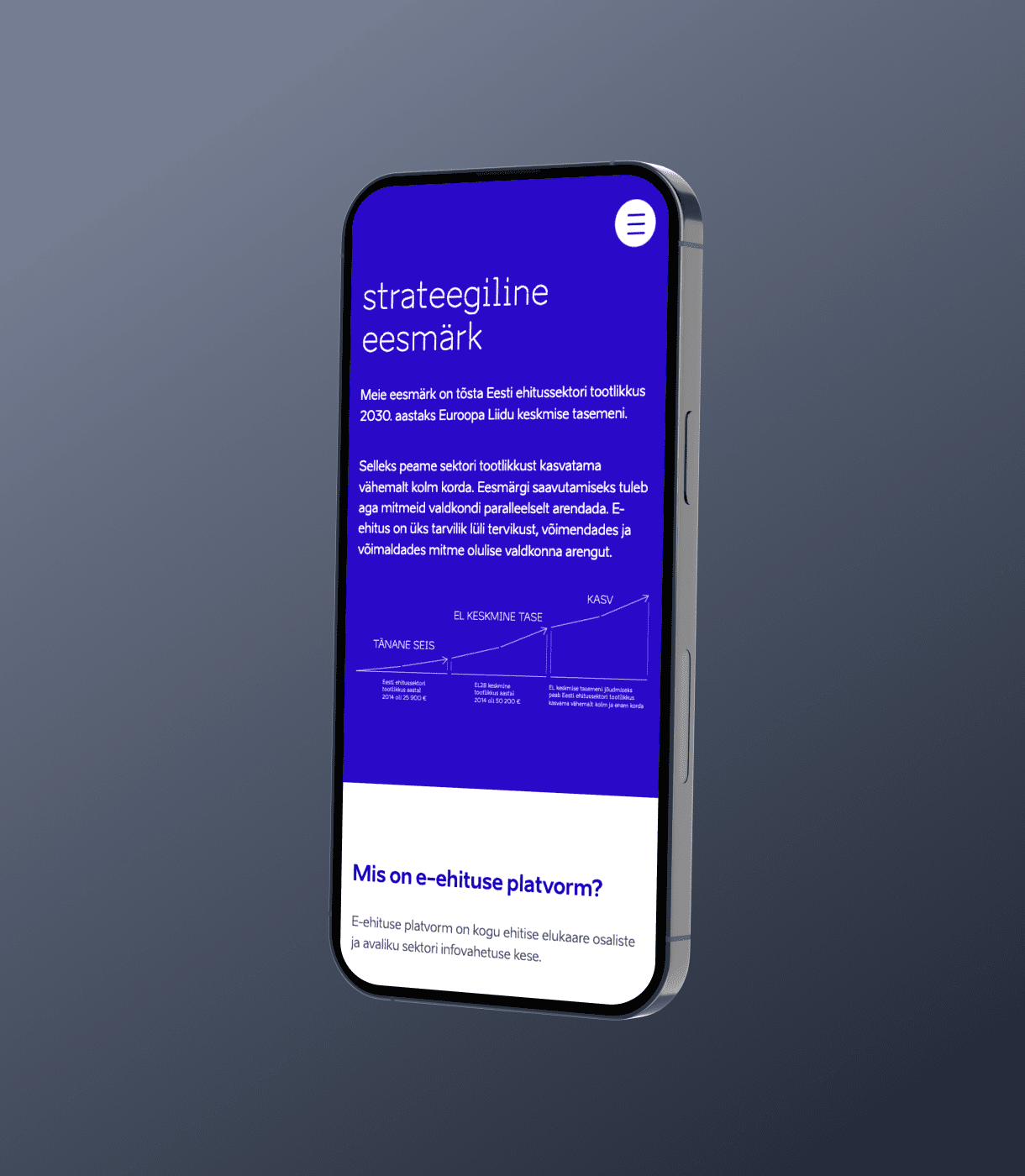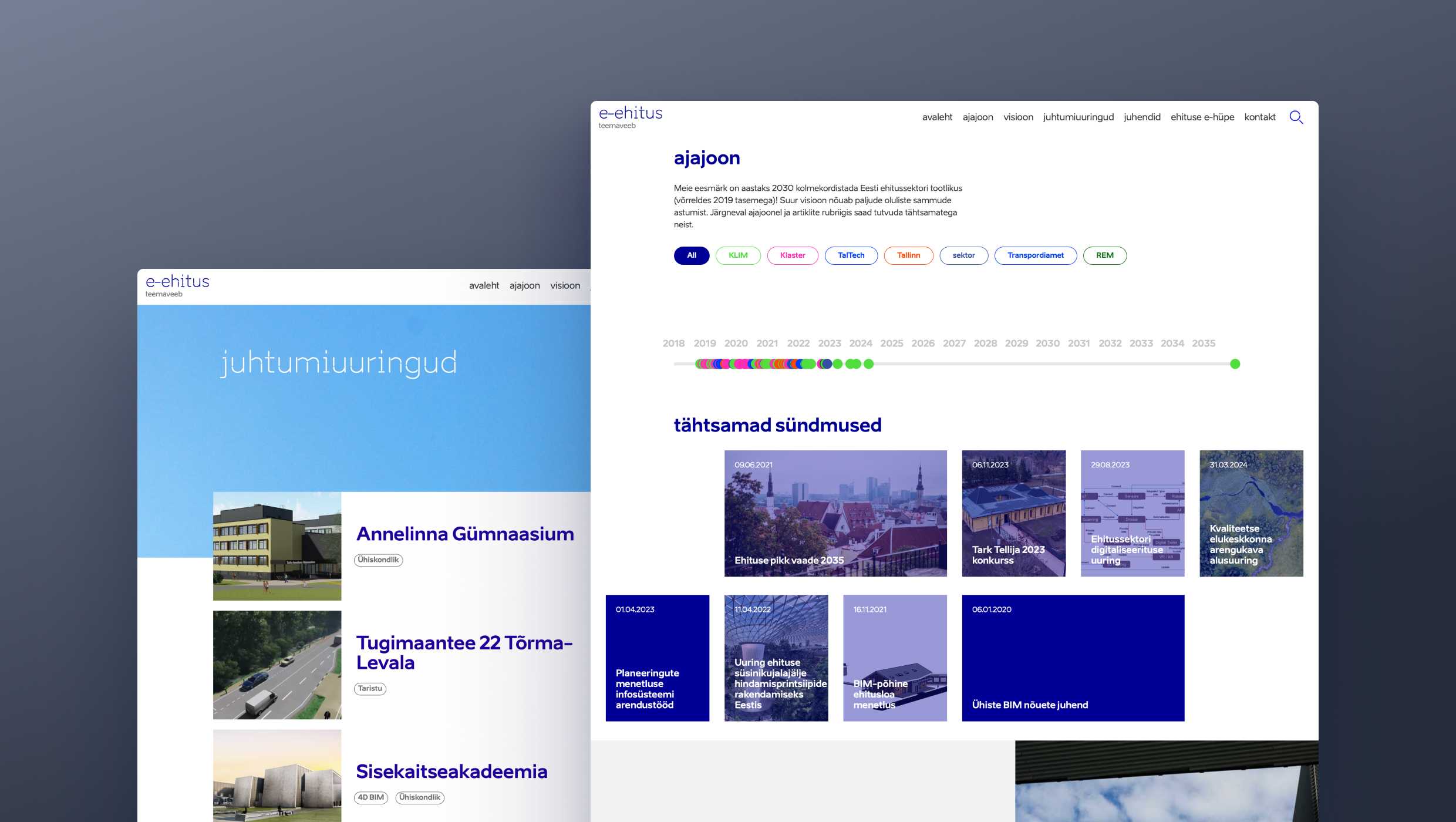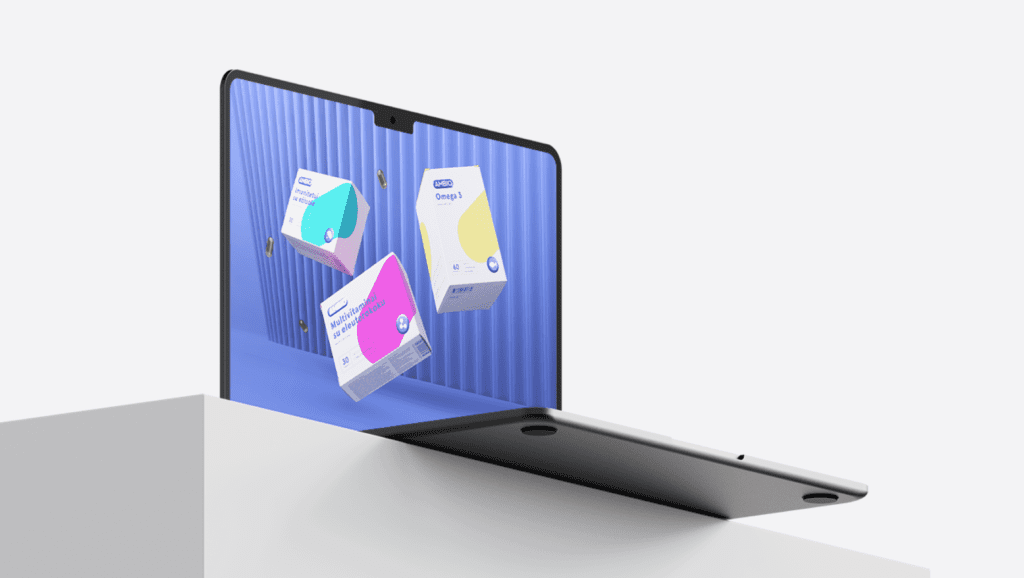Helping the Ministry of Economic Affairs and Communications in Estonia to streamline administrative activities in the construction sector
Client
The Ministry of Economic Affairs and Communications in EstoniaThe background:
The Ministry of Economic Affairs and Communications in Estonia has initiated the ambitious web project known as E-ehitus. The primary objective of this platform is to serve as a functional hub for streamlining all administrative activities related to the construction sector.
That includes architects, engineers, landlords, construction companies, local municipal officials, and state employees. Literally, all participants in this sector. Presently, most of these activities rely on manual processes, resulting in an astonishingly time-consuming and inefficient paperwork burden.
Our assignment was to create a developer portal for E-ehitus, enabling seamless digital exchange of information and documents among different project partners, ultimately saving a significant amount of time, and streamlining operations.
The essence of the project:
To streamline processes, E-ehitus will serve as the central system, making it easier to exchange information with various counterparties. However, achieving this requires the integration of all applications through APIs. In this context, the creation of a well-designed developer portal, that is easy to navigate, up-to-date, and user-friendly, is a crucial starting point.
Using a developer portal is a common practice in global SaaS products. Although Estonia’s e-government has been a notable success story, such a portal has not been a part of the public sector management until now. We approached it by analyzing well-established developer portals. Our goal was to identify patterns that enable technical individuals to understand the opportunities and challenges associated with their tasks.
After that we developed a developer portal for E-ehitus. We enabled different project partners to efficiently exchange information and documents digitally.
This portal also provides information on available services, relevant legislative documents, guidance on interfacing with the E-ehitus platform, and essential data for various permits.

The potential impact of this innovation is high in terms of cost and time savings, particularly given the construction sector’s significant contribution to GDP, with major projects often exceeding budgets of 500 million euros. The goal of this megaproject is to enhance the construction sector’s productivity by 2 to 3 times by the year 2030.
While the full realisation of this platform will undoubtedly take a considerable amount of time, it marks an essential initial step towards making it accessible for all parties to integrate seamlessly into their everyday workflow.
Services provided:
- Business analysis.
- Service engineering.
- User research.
- UX/UI.
- Frontend development.

Results:
While we acknowledge that this is only the initial stage of a project of this magnitude, we hope to see developer portals of this nature become the standard for state-owned systems. After all, ensuring the accessibility of documentation in a practical manner is a fundamental aspect of any system integration.


